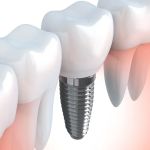The Importance of Dental Care During Pregnancy
Pregnancy is a time of great change for a woman's body, and it’s important to take extra care of your health during this period. One area that is often overlooked but is essential for both the mother and the baby is oral health. Dental care during pregnancy plays a crucial role in ensuring that both the mother’s teeth and gums remain healthy, while also reducing the risk of complications. In this article, we will explore why dental care is vital during pregnancy and how you can maintain your oral health during this important time.
1. Hormonal Changes and Oral Health
During pregnancy, hormonal fluctuations can have a significant impact on a woman's oral health. Increased levels of progesterone and estrogen can lead to changes in the gums, making them more sensitive and prone to infection. This condition is known as pregnancy gingivitis and is characterized by swollen, bleeding gums, especially when brushing or flossing. Untreated gum disease can lead to more serious conditions, such as periodontitis, which may affect both the mother and the baby.
Pregnancy gingivitis typically develops in the second month of pregnancy and can worsen by the eighth month. It's important to maintain good oral hygiene habits to prevent gum issues. Brushing twice a day with fluoride toothpaste, flossing regularly, and using an antimicrobial mouthwash can help reduce the risk of gingivitis. Regular dental checkups are also essential during pregnancy to monitor and address any concerns early on.
2. The Connection Between Oral Health and Pregnancy Complications
Good oral hygiene during pregnancy doesn’t just benefit the mother’s teeth and gums – it can also impact the overall pregnancy. Studies have shown that poor oral health, particularly gum disease, may increase the risk of complications such as preterm birth, low birth weight, and preeclampsia. The bacteria from infected gums can enter the bloodstream and potentially trigger systemic inflammation that may lead to these complications.
For this reason, pregnant women should prioritize dental care as part of their prenatal health regimen. By preventing or treating gum disease, expectant mothers can reduce the risk of such complications, leading to a healthier pregnancy and delivery.
3. Common Dental Issues During Pregnancy
In addition to pregnancy gingivitis, there are other common dental issues that women may experience during pregnancy. One such issue is “pregnancy tumors,” which are benign growths that can develop on the gums. These tumors are typically small, red, and painless and often appear during the second trimester. While these tumors are not cancerous and typically disappear after childbirth, they may need to be removed if they cause discomfort or interfere with eating and oral hygiene.
Another common concern is the increased risk of tooth decay. Pregnant women often experience changes in their diet, such as cravings for sugary foods or acidic drinks, which can lead to an increased risk of cavities. Additionally, morning sickness can expose teeth to stomach acid, which can erode enamel and lead to tooth sensitivity. It's essential to rinse your mouth with water after vomiting and to avoid brushing your teeth immediately after, as enamel is softer during this time.
4. Safe Dental Treatments During Pregnancy
Dental visits are crucial during pregnancy, but many women wonder whether it's safe to receive dental treatments. The good news is that most dental procedures are safe during pregnancy, especially during the second trimester when the risk to the baby is lower. Routine cleanings, exams, and even some fillings can be performed with minimal risk to both the mother and the baby.
However, certain procedures, such as X-rays, should be avoided unless absolutely necessary. If X-rays are required, your dentist will use a lead apron to shield the abdomen and reduce any potential exposure. It's also important to inform your dentist if you are pregnant so they can adjust treatment plans accordingly. Additionally, some dental medications, such as certain painkillers, may not be safe during pregnancy, so it's crucial to use only those recommended by your healthcare provider.
5. Preventing Tooth Decay and Maintaining Oral Hygiene
Maintaining good oral hygiene during pregnancy is essential to preventing tooth decay and gum disease. The American Dental Association recommends brushing at least twice a day with fluoride toothpaste, flossing daily, and using an antimicrobial mouthwash to help reduce bacteria. It's also a good idea to replace your toothbrush every three to four months, especially during pregnancy when the immune system is more vulnerable.
In addition to these habits, limiting sugary snacks and drinks can significantly reduce the risk of cavities. If you're experiencing cravings for sweets, try to opt for healthier alternatives like fruits or vegetables. If you do consume sugary foods, try to brush your teeth afterward or rinse with water to minimize their impact on your teeth.
6. The Role of Diet in Oral Health During Pregnancy
A balanced diet rich in vitamins and minerals is essential for both the health of the mother and the developing baby. Calcium, in particular, plays a vital role in the development of the baby’s teeth and bones. Pregnant women should ensure they are getting enough calcium through their diet or supplements. Good sources of calcium include dairy products, leafy greens, nuts, and fortified foods.
Vitamin D is also important for oral health, as it helps the body absorb calcium. Pregnant women should get adequate exposure to sunlight and consume foods rich in vitamin D, such as fortified milk, eggs, and fatty fish. Eating a diet rich in fruits, vegetables, and lean proteins will provide the essential nutrients needed for both the mother's and baby's health, including strong teeth and gums.
7. How Dentistry Toothtruth Can Help
At Dentistry Toothtruth, we understand the importance of maintaining oral health during pregnancy. Our team of experienced dental professionals is committed to providing safe, effective, and compassionate care for expectant mothers. We offer comprehensive dental services, including routine checkups, cleanings, and treatment for gum disease, to help keep your smile healthy throughout your pregnancy. Our knowledgeable staff can also provide personalized advice on maintaining optimal oral hygiene and addressing any concerns during your pregnancy.
If you are pregnant and need dental care, don't wait – visit Dentistry Toothtruth today for a consultation. We’re here to ensure that you and your baby have a healthy start.
SEO Title: The Importance of Dental Care During Pregnancy: Tips for Expecting MothersSEO Keywords: dental care during pregnancy, pregnancy dental health, oral hygiene during pregnancy, prevent tooth decay during pregnancySEO Description: Learn why dental care during pregnancy is essential and how to maintain healthy teeth and gums. Discover tips to prevent tooth decay and gum disease during pregnancy.






 Calder Dental4.0 (5 review)
Calder Dental4.0 (5 review) Dental Ben's4.0 (171 review)
Dental Ben's4.0 (171 review) Northland Family Dentistry4.0 (111 review)
Northland Family Dentistry4.0 (111 review) Sheats Endodontic Group4.0 (148 review)
Sheats Endodontic Group4.0 (148 review) Ford Signature Dentistry4.0 (300 review)
Ford Signature Dentistry4.0 (300 review) Prosthodontics of Madison - Kendra Schaefer, DMD & Christine Roenitz, DMD4.0 (25 review)
Prosthodontics of Madison - Kendra Schaefer, DMD & Christine Roenitz, DMD4.0 (25 review) The Importance of Oral Health Education During Pregnancy for a Healthy Pregnancy
The Importance of Oral Health Education During Pregnancy for a Healthy Pregnancy Best Tips for Brushing Your Teeth Properly for Healthy Gums: Essential Techniques for Oral Health
Best Tips for Brushing Your Teeth Properly for Healthy Gums: Essential Techniques for Oral Health Why Skipping Dental Checkups Can Lead to Bigger Oral Health Problems
Why Skipping Dental Checkups Can Lead to Bigger Oral Health Problems Advantages of Porcelain Dental Restorations
Advantages of Porcelain Dental Restorations How Can Diabetes Cause Tooth and Gum Problems? Preventing and Managing Oral Health Issues
How Can Diabetes Cause Tooth and Gum Problems? Preventing and Managing Oral Health Issues Healthy Habits for Promoting Good Oral Health and Hygiene: Tips for a Healthy Smile
Healthy Habits for Promoting Good Oral Health and Hygiene: Tips for a Healthy Smile